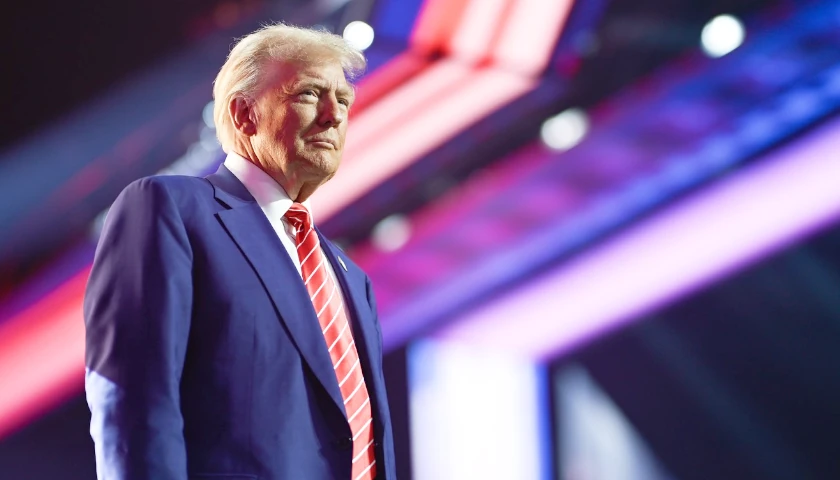by Tim Huelskamp, Ph.D.
It’s safe to say that Big Tech hasn’t had a great month.
Google received a beating at the Supreme Court for allegedly stealing the coding needed to create Android. Congress subpoenaed Facebook and Twitter for deliberately blocking news coverage potentially damaging to one political party — a move that culminated in a high-profile hearing yesterday. And now, the Department of Justice has charged Google with illegally maintaining its search and advertising monopoly.
Amid all this progress in holding the Big Tech giants accountable, it would be a shame if former Google staffers in the DOJ’s Antitrust Division take actions that inadvertently undercut the entire process. Unfortunately, that’s exactly what leaders in the tech accountability movement fear may happen.
Turning Point USA Chairman Charlie Kirk worries that a review of little-known antitrust agreements, called consent decrees, between the federal government and monopolies in the music industry may help the likes of Google at the expense of the American people. Kirk is not alone. Similar concerns have been expressed by Matt Mackowiak, a county GOP chairman in the State of Texas, where Attorney General Ken Paxton is leading a 50-state-and-territory AG investigation into Google’s advertising monopoly, and others.
In short, the Antitrust Division’s music review process involves two music licensing monopolies that control 90 percent of music. These monopolies, called ASCAP and BMI, were put under antitrust agreements with the federal government to resolve price-gouging concerns.
The decrees are straightforward. They ensure that these two behemoths can retain their market share (and not need a government break-up), as long as they abide by a set of rules — including offering blanket music licenses indiscriminately under a fair pricing arrangement. Failure to abide by the terms, though, could lead to penalties and further action to protect consumers.
Now, however, the DOJ is considering weakening them at the worst possible time.
Kirk, Mackowiak, and others’ fear is not that the Antitrust Division started the review of the music monopolies’ agreements with nefarious intent (the former Google associate in question recused himself from the Google investigation, after all). Their concern is that a decision to weaken the consent decrees in the music industry will effectively limit what the attorney general can do to protect us from Big Tech.
The case against Google, Facebook, and Twitter may appear clear-cut, but then again, so too does it for the music monopolies. ASCAP and BMI still have the same monopoly power as when the DOJ first implemented the decrees. One of them recently had to settle a civil contempt suit for allegedly violating its antitrust agreement. The DOJ even completed a two-year review in 2017 and found that it should not modify the antitrust agreements.
Should the Antitrust Division significantly alter these music agreements, it would signal that the DOJ is taking a laxer approach to addressing market share concerns through antitrust law. That’s concerning for the Big Tech case given that the department is typically bound very closely to precedent. It may not matter that the department has already filed charges and that all the facts are against Google concerning its control of the search and advertising markets. The department’s hands may be tied in the immediate weeks and months ahead because of any monopoly-emboldening, precedent-setting decision made in the music case.
Compounding the problem is how consent decrees, the very same remedy used for the music monopolies, may be an appropriate solution for the DOJ to use against Big Tech.
Richard Manning, the president of Americans for Limited Government, wrote in Fox Business that “Congress should immediately press the Department of Justice and the Federal Trade Commission to explore the feasibility of using consent decrees to reign in the Big Tech monopolies.” He explicitly used the music monopoly example as a success story that DOJ should look to and wrote that “they work by formally making bad behavior illicit and attaching legal or financial penalties to them.”
Your guess is as good as mine for how the DOJ would manage to form consent decrees for Big Tech if it blows up one of the country’s leading consent decree models in the music industry. In all likelihood, it wouldn’t be able to, and the Justice Department would burn one of the most effective antitrust mechanisms it has to combat the tech problem.
Because of the developments seen this month, our nation is at a pivotal inflection point — an inflection point that will ultimately mark the fate of tech accountability in the United States.
There is a fork in the road, and U.S. decision-makers now need to decide which path to take. With the hearings in Congress peaking and the DOJ finalizing one of its own investigations, will they opt to come to terms with a solution, or will they show that all this hard work was mere bluster?
Time will tell, but the Antitrust Division rewarding other monopolies just before Big Tech’s judgment day will make the path to accountability that much more difficult to take.
– – –
Tim Huelskamp, Ph.D., was a member of Congress for Kansas’s First Congressional District from 2011–17. He also served in the Kansas Senate from 1997–2011, where he served as Chairman of the Joint Committee on Information Technology.
Photo “Big Tech” by Yuri Samoilov CC BY 2.0.




